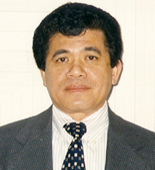US Immigration News
|
LEGAL NOTES / NOV 2006
By REUBEN S. SEGURITAN |
|
|
|
|
|
|
|
Hardship Waiver of the Two Year J-1 Residency |
By Reuben S. Seguritan
Editor’s Note: REUBEN S. SEGURITAN has been practicing law for over
30 years. For further information, you may call him at 212 695 5281
or log on to his website at www.seguritan.com
Many J-1 holders are subject to the so-called 2-year foreign
residency requirement. This requirement compels these J-1 holders to
return to their home country or their country of last residence at
the end of their training.
In general terms, the following J-1 holders are subject to the
2-year foreign residence requirement: those whose participation is
financed by a US government agency, or a government agency of his
home country or country of last residence; and those who at the time
the J-1 status is obtained fall under the periodically revised
Department of State (DOS) skills list. Also subject are those who
acquired their J-1 status after January 10, 1977 to pursue graduate
medical training.
J-1 holders who do not comply with the 2-year residency requirement
are precluded from certain immigration benefits. For instance, they
are not eligible to adjust status; they may not apply for an
immigrant visa or an H or L visa; they cannot change status (unless
it is for an A or G visa or for a certain H-1B for physicians).
2- Year Residency Waiver
A waiver of the two-year residency requirement may be obtained upon
a showing that the J-1 holder’s departure from the US would create
exceptional hardship on the alien’s US citizen or permanent resident
spouse or child.
Applying for a hardship waiver is one of the most complicated
immigration applications, but with preparation and careful
documentation of the resulting hardship to the US citizen or
permanent resident spouse and/or child, a J-1 holder may obtain a
waiver and need not leave the US to comply with the 2-year residency
requirement.
“Exceptional hardship” depends on the facts and circumstances of a
given case. It must be noted, however, that the exceptional hardship
does not pertain to the J-1 holder, but to his/her spouse or
child/ren, who must be US citizen/s or permanent resident/s.
Thus, the so-called merits of the application would depend on proof
that the family members would suffer exceptional hardship if the
family members were to accompany the J-1 holder to his/her home
country; and if they were to stay in the US while the J-1 holder
returned and stayed in the home country for two years.
|
|
ADVERTISEMENT |
 |
|
|
Types of Hardships
Some USCIS decisions could provide some guidance on what constitutes
“exceptional hardship” as would merit the approval of an application
for the residency waiver.
In most cases, well-documented medical hardships are given
relatively more weight by the USCIS or the DOS than other types of
hardships. At any rate the applicant must submit evidence of any
other hardship that the J-1 family would suffer because the totality
of the evidence may lead to a finding of exceptional hardship even
if each evidence, on its own, would not be enough basis to grant the
waiver.
Examples of medical hardship would be a case where a member of the
family would require medical care that is available only in the US
and not in the J-1 holder’s home country, or exposure to disease
that is widespread in the J-1 holders country of last residence.
|
|
|
|
Psychological or cultural hardship may include the effects of family
separation in light of the number and age of the children, their
ability to speak a foreign language and the length of residence of
the J-1 and his/her family in the US. Economic hardship may
include considerable expenses of maintaining two separate households
or difficulties in relation to an investment in the US that cannot
be easily liquidated.
Proof of “irreparable harm” from loss of educational opportunities or
inability to obtain comparable employment to support the J-1
holder’s family may also be submitted in support of the waiver.
A J-1 waiver applicant may also submit proof of possible
persecution or harm due to “family member’s race, religion,
political views or US citizenship.” Although persecution may be
considered a basis for the grant of a hardship waiver, this is
better used for asylum applications because the latter requires a
lower standard of proof and an asylum grant has the same effect as a
waiver of the residency requirement.
The bottom line in all hardship waivers is being able to make the
case with sufficient evidence.
|
 |
REUBEN S. SEGURITAN has been practicing law for
over 30 years. He was former immigration editor and is author of a
book on immigrant experiences. He frequently speaks on immigrant
issues and for his advocacy efforts he was the recipient of two
presidential awards by President Ramos and an award by the
Commission on Filipinos Overseas. He previously taught business law
and international politics. For further information, you may call
him at 212 695 5281 or log on to his website at www.seguritan.com |
|
|
|
|
Terms of Use. Privacy Policy. Disclaimer. |
| |
| |
|
|
|
 |
Filipina and Filipino for friendship, dating, chat, romance on Filipino Friend Finder |
|
|
|
|
|
|
| |
| |
 |
| |
| |
| |
| |
| |
| |
| |
| |
| |
| |
| |
| |
|